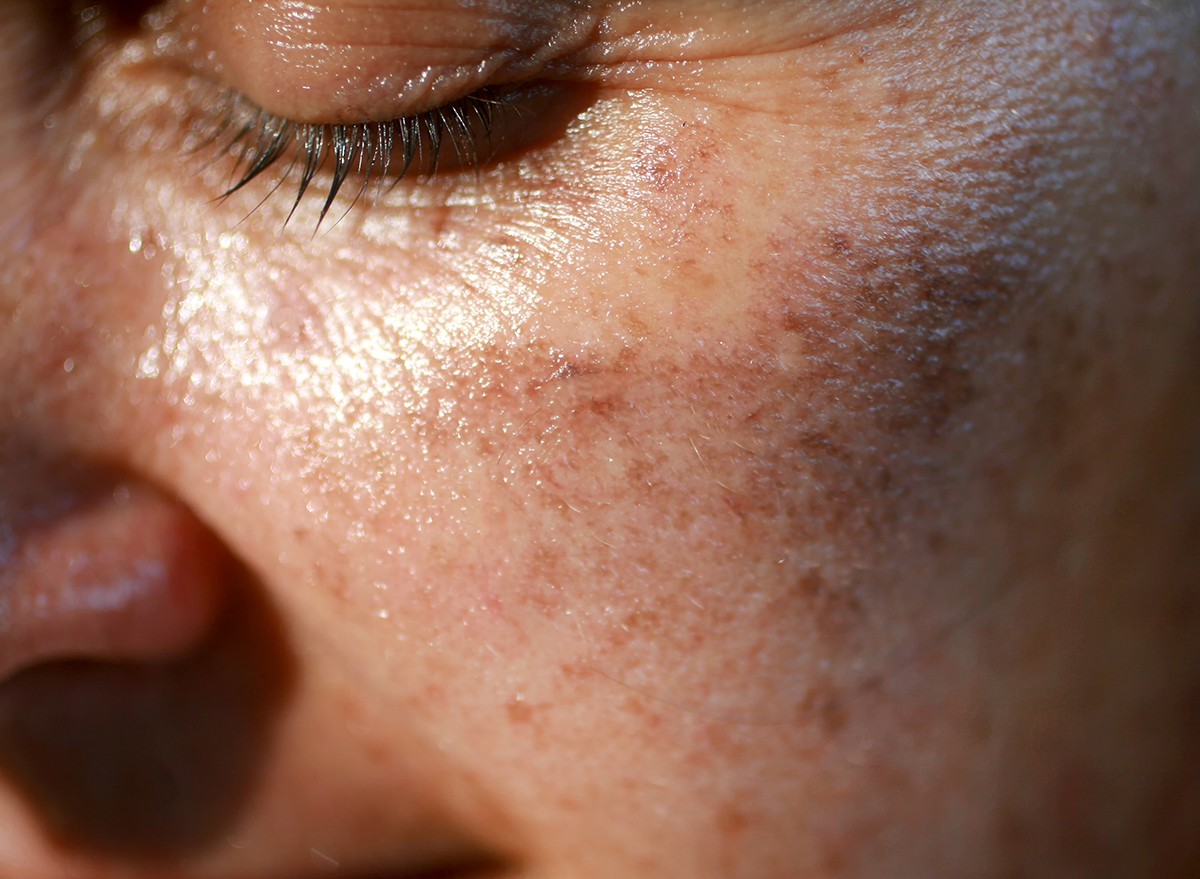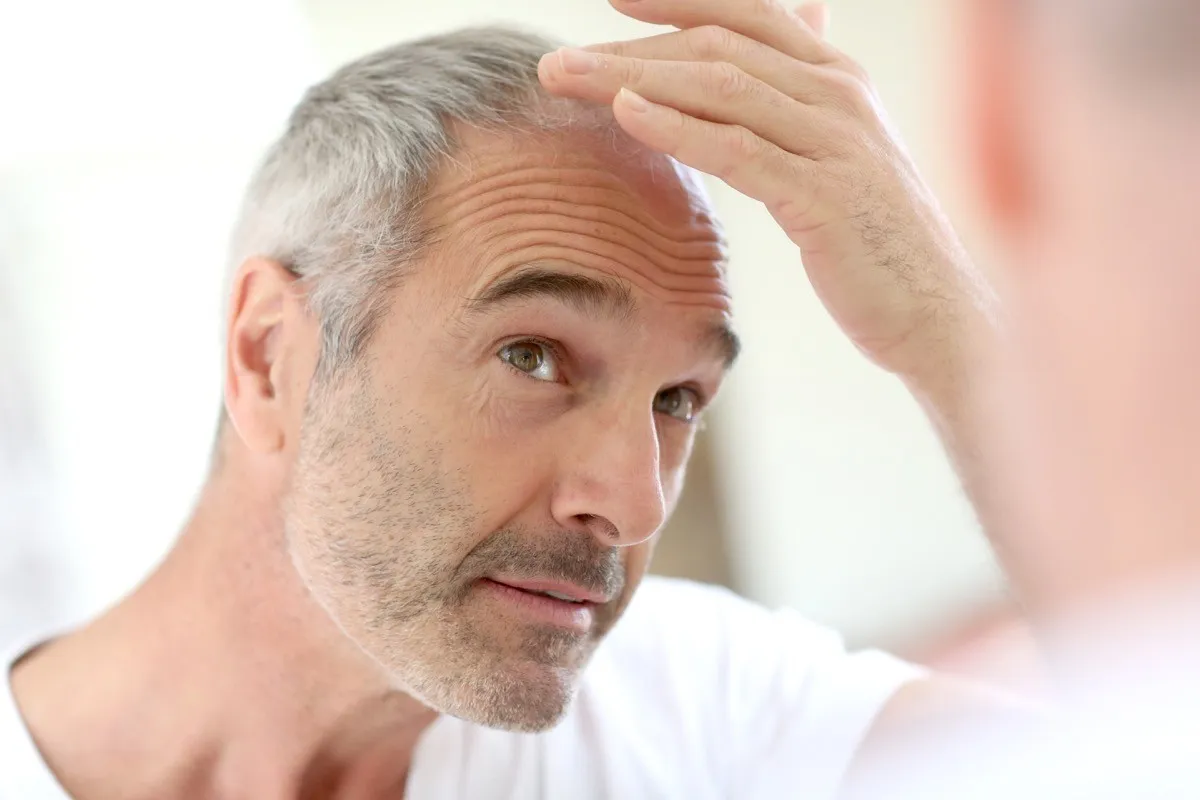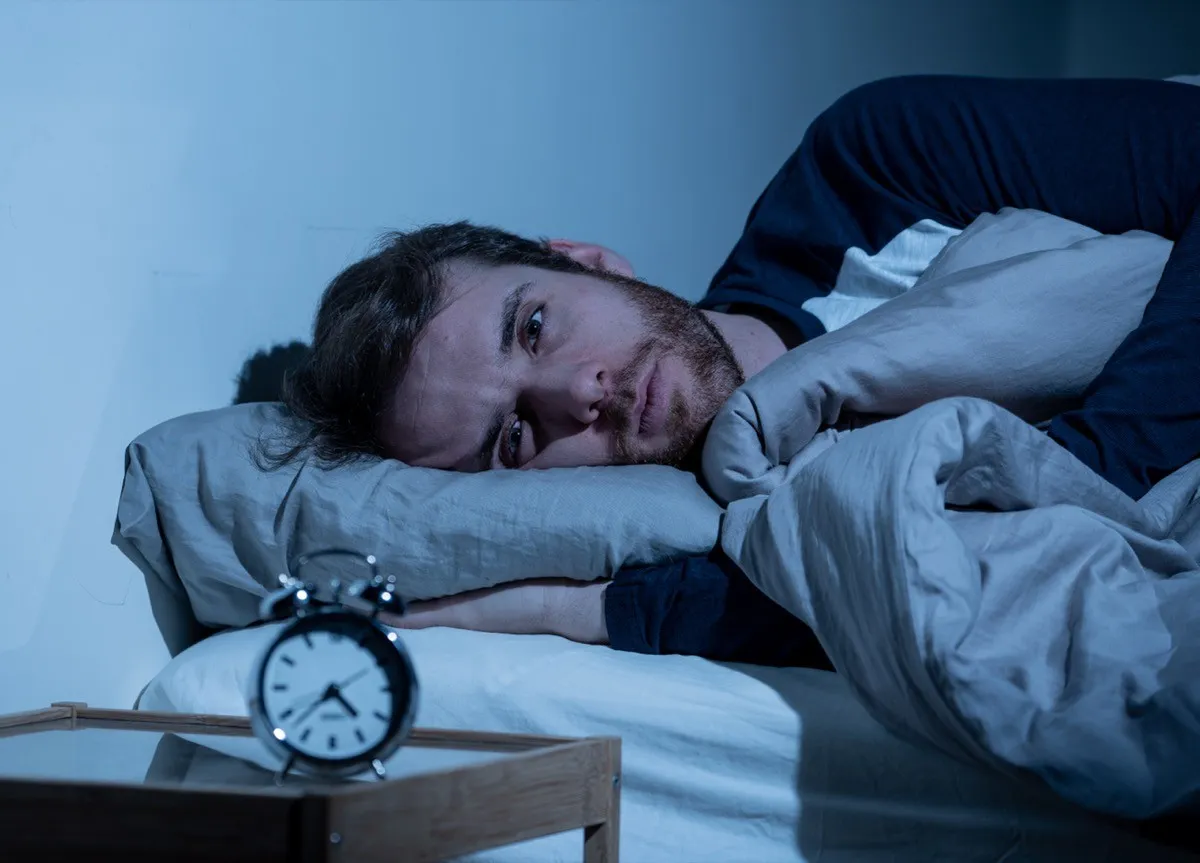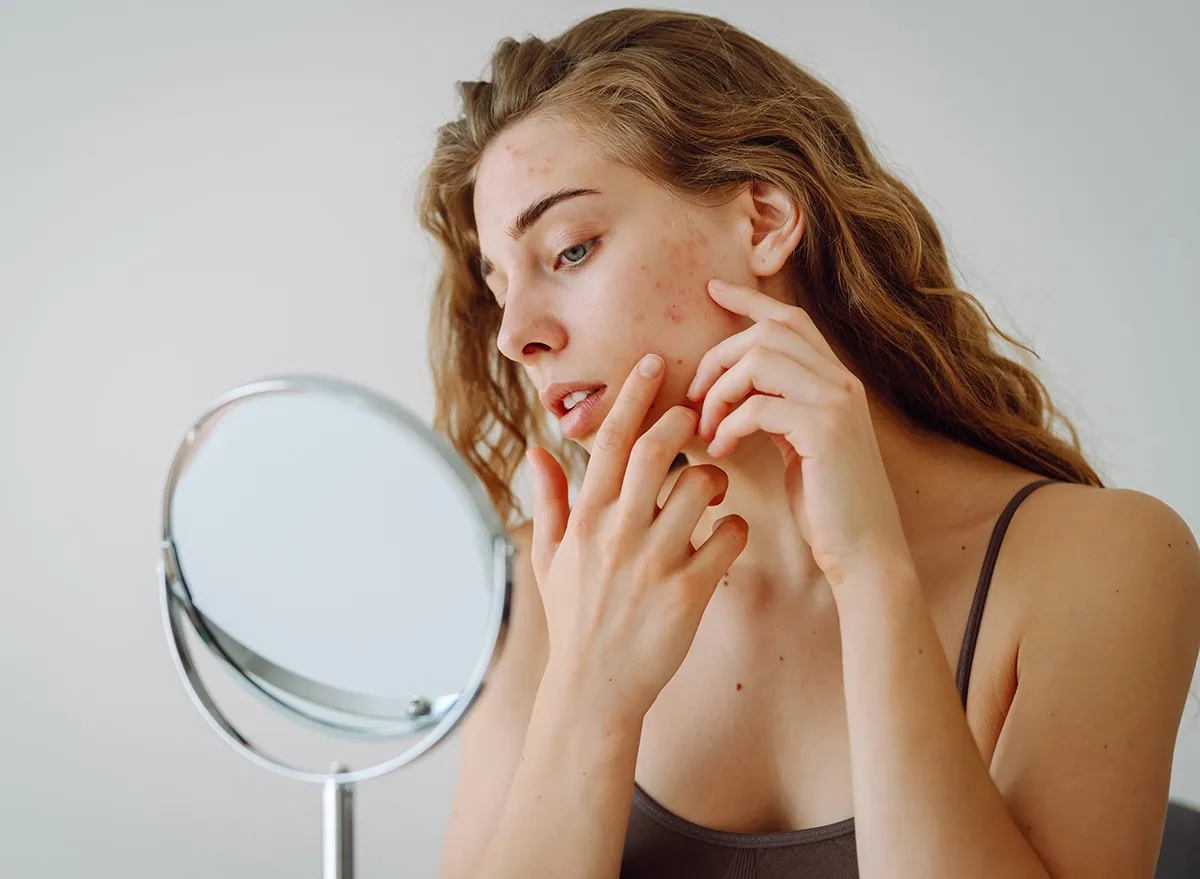7 Signs You’re Aging Faster Than You Need to Be

Aging is a natural process, but what if you’re aging faster than you should be? Common lifestyle factors and behaviors can speed up aging, both on the inside and outside. “Over time, our bodies naturally age. Premature aging is when the typical effects of growing older happen early. It’s when your body looks older than your actual age,” says the Cleveland Clinic. Here are 7 signs you might be aging faster than you should be.
RELATED: These Popular Breakfast Foods Could Be Aging You Faster.
1
Sun Damage

Too much sun exposure can do a number on your skin, experts warn. “Daily sunlight can have quite a few advantages for our mental and physical health, but we don’t need that much sun to experience the benefits — ten minutes is plenty enough to get our recommended vitamin D,” Mona Brownfield, MD, tells MU Health Care. One of the biggest misconceptions I hear is sun exposure just makes your skin thick and leathery, when in fact, the opposite can be just as true. Too much sun exposure can break down our skin’s elasticity causing it to be thick like leather or thin like tissue paper. Not only that, UV rays can damage collagen proteins in the skin, leading to sagging or loose skin, and speed up the production of melanin (cells that give the skin its color) causing dark age spots.”
2
Stiff Joints

Stiff, achy joints could be a sign of premature aging. “I think if you’re in your 40s or younger, and you’re starting to experience things like inappropriate pain or discomfort, those may be red flags,” Nathan LeBrasseur, PhD, director of the Mayo Clinic’s Robert and Arlene Kogod Center on Aging, tells TODAY.
3
Hearing Loss

Age-related hearing loss is normal, but hearing issues can happen at any age. “Long-lasting exposure to loud noises isn’t usually one that’s on my patients’ radar until they start to experience its adverse effects on their hearing,” says Dr. Brownfield. “When I say loud noises, I’m not just talking about rock concerts and industrial machinery, which are usually the first things people think of; I’m talking about boats, lawn mowers, movie theaters and even vacuuming. Exposure to loud noise can damage the little hair cells in our ears that carry sound to our brain. Once those hairs are broken, they can’t regrow, and the less hairs we have, the worse our hearing.”
4
Hair Loss

It’s normal for hair to turn gray and become thinner as we age, but stress can make the process happen earlier. “Your hairs transition to the death phase faster, so your hair sheds much faster than it should and it can last for several months after the stressful event,” Dr. Adam Friedman, dermatologist and professor of dermatology at the George Washington School of Medicine, tells TODAY.
RELATED: A High-Protein Diet May Accelerate Aging.
5
Poor Immune Health

Stress can cause premature aging to our immune system, experts say. “Research has found the hormones produced with chronic stress can age our brain and immune systems,” says Dr. Brownfield. “Those who are constantly stressed have higher instances of dementia and memory loss, as well as more damaged cells within their immune systems. Stress also lends itself to high blood pressure, making you more susceptible to heart disease and other conditions typically found in older populations.”
6
Poor Sleep

Poor sleep can accelerate brain aging. “Brain aging is described by the interplay of our sleep patterns and changes in the brain’s garbage cleaning abilities,” says Melanie Keller, ND. “Insufficient sleep leads to an increase of the brain’s garbage concentration and may explain an underlying mechanism behind healthy or unhealthy brain aging.”
7
Bad Skin From Poor Diet

What you eat shows up on your face. “Findings from a few studies suggest that eating plenty of fresh fruits and vegetables may help prevent damage that leads to premature skin aging,” says the American Academy of Dermatology. “Findings from research studies also suggest that a diet containing lots of sugar or other refined carbohydrates can accelerate aging.”